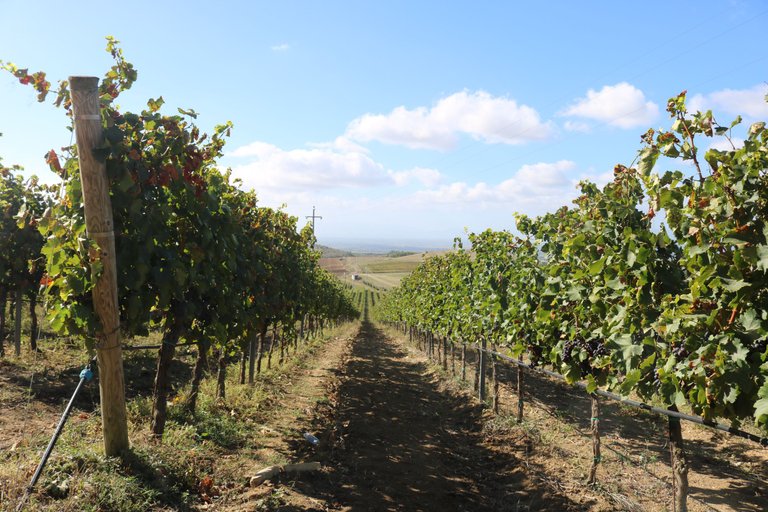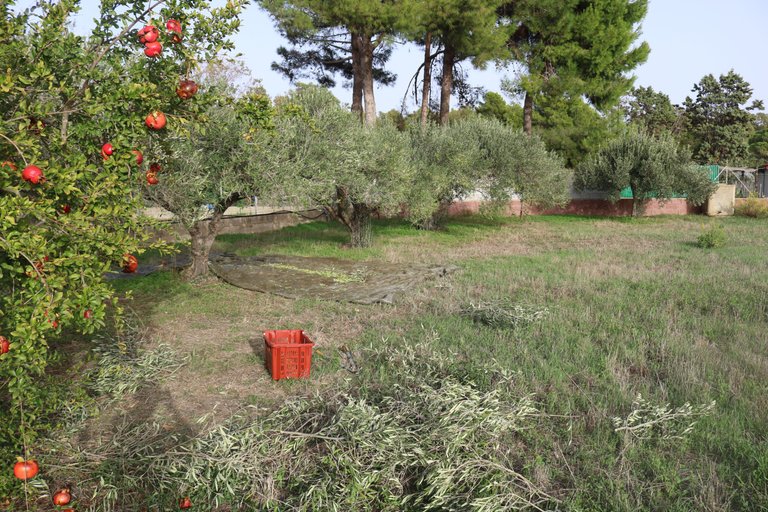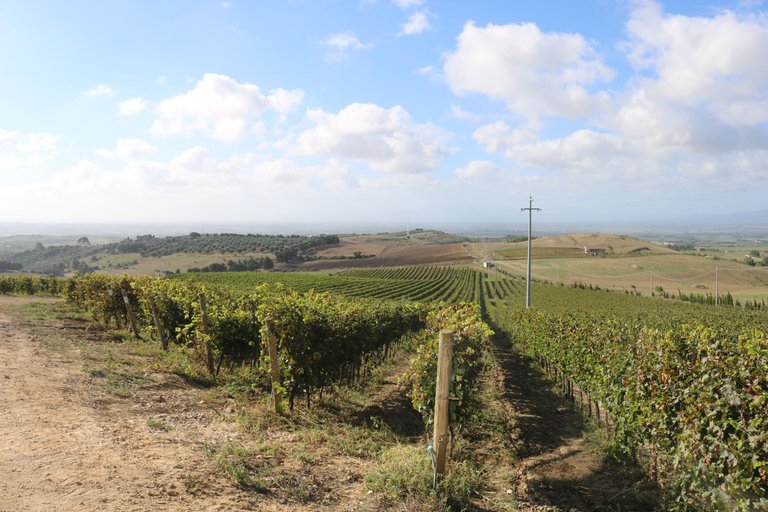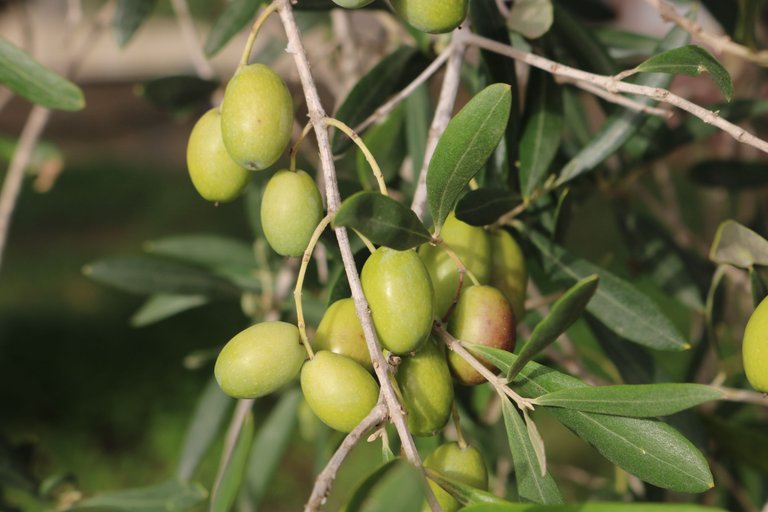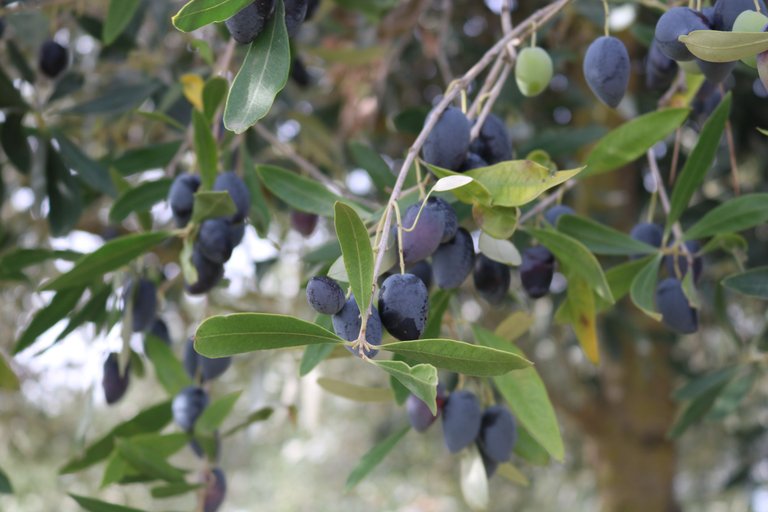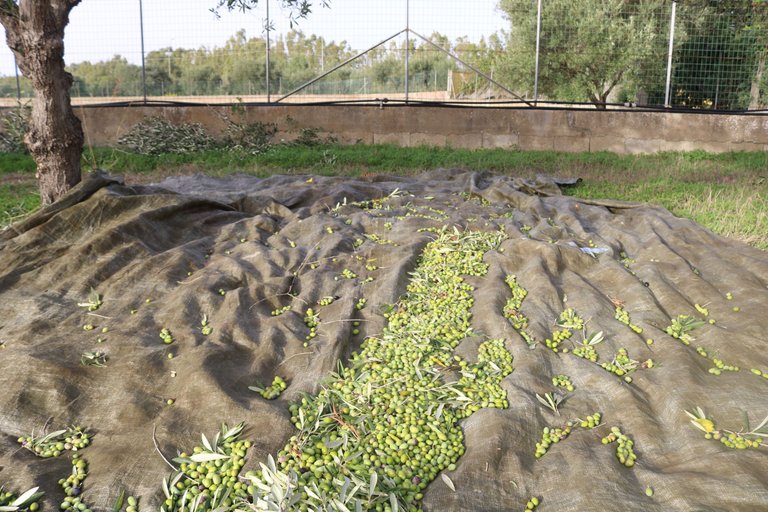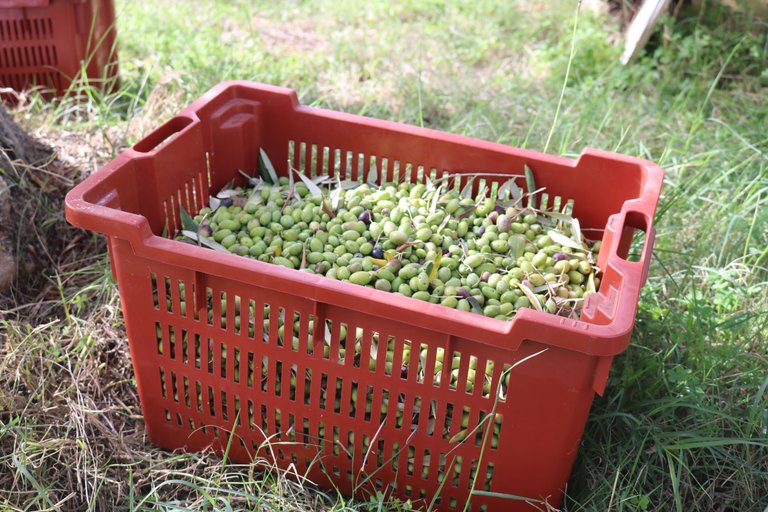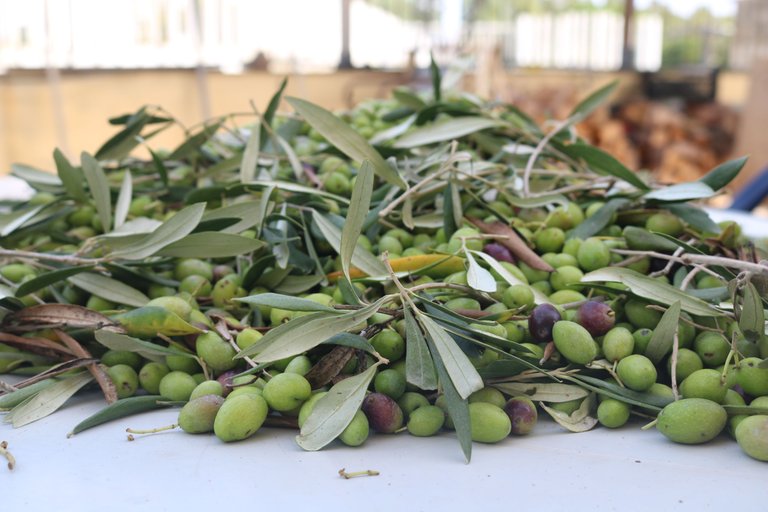Ciao, Hive friends!
In the past weeks, I found myself engaged in the two activities that mark the transition from summer to autumn in many Mediterranean countries: grape harvesting and olive picking.
At first, I got hired as a seasonal laborer in numerous vineyards. In October, I turned to harvesting olives on my own fields. These olive trees are older than me. My grandfather - the one who planted them - passed away some years ago, and to take care of his trees is also my way to honor his memory.
I think I’ve already given you an idea of how deeply rooted this tradition is in our culture: a tradition that has been passed down from generation to generation for over five thousand years.
When I was a child, this was an usual work for me and my family. I can’t say I liked it for real. Once the first curiosity faded away, I started to find it boring: days and days spent working hard among old grumpy men.
Years have passed, and as we know, with time we understand many things. The joy of growing up in the open air, with the insects and the birds. The beauty that comes from patience and care. The value of family. The wonder of autumn that kisses your skin with its sun, its wind, its dew. The satisfaction of starting a task and seeing the finished result, and tasting a product made with your hands, with the time you’ve sacrificed for it.
I’ve discovered, as an adult, that I missed these things a lot.

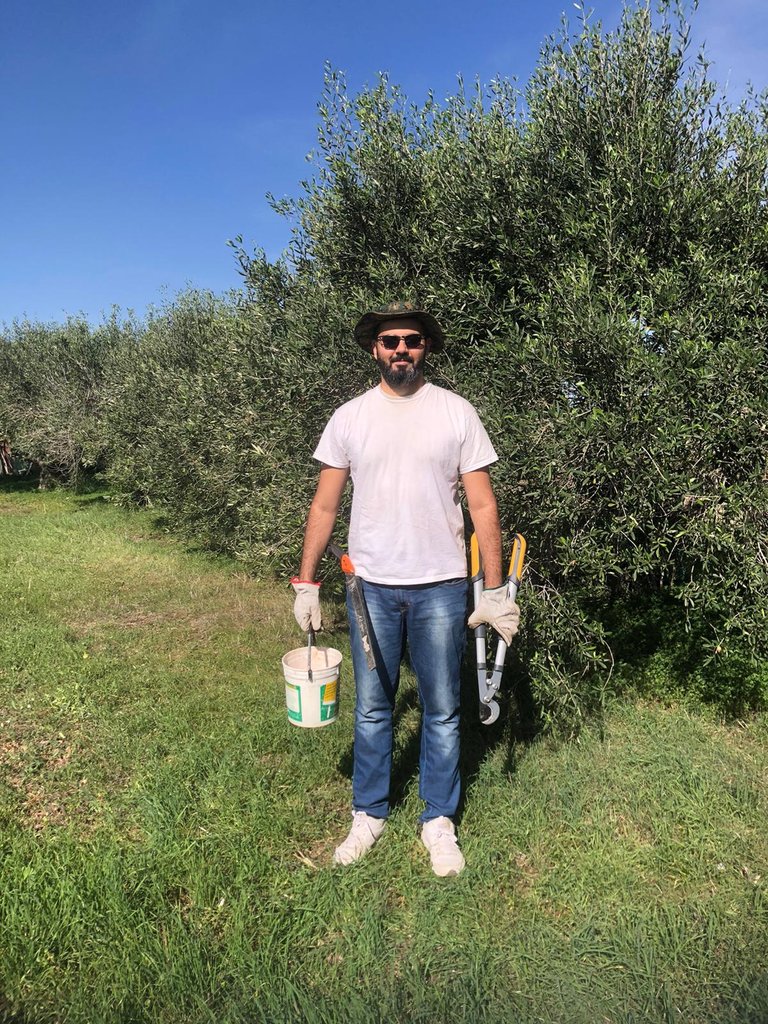
Working in the vineyards is very simple, but not easy. You just have to stay bent over and pick all the grape clusters you come across. When the bucket is full to the brim, you need to load it onto the truck. Just for the record, each full bucket weighs 20 kilos.
Once the crate is unloaded, you return to your spot among the rows. This can go on for many hours, and there are a few challenges: the wasps, the ticks, but above all the uncomfortable position. It seems easy, but after just a few hours, I felt a sharp pain in my back and legs.

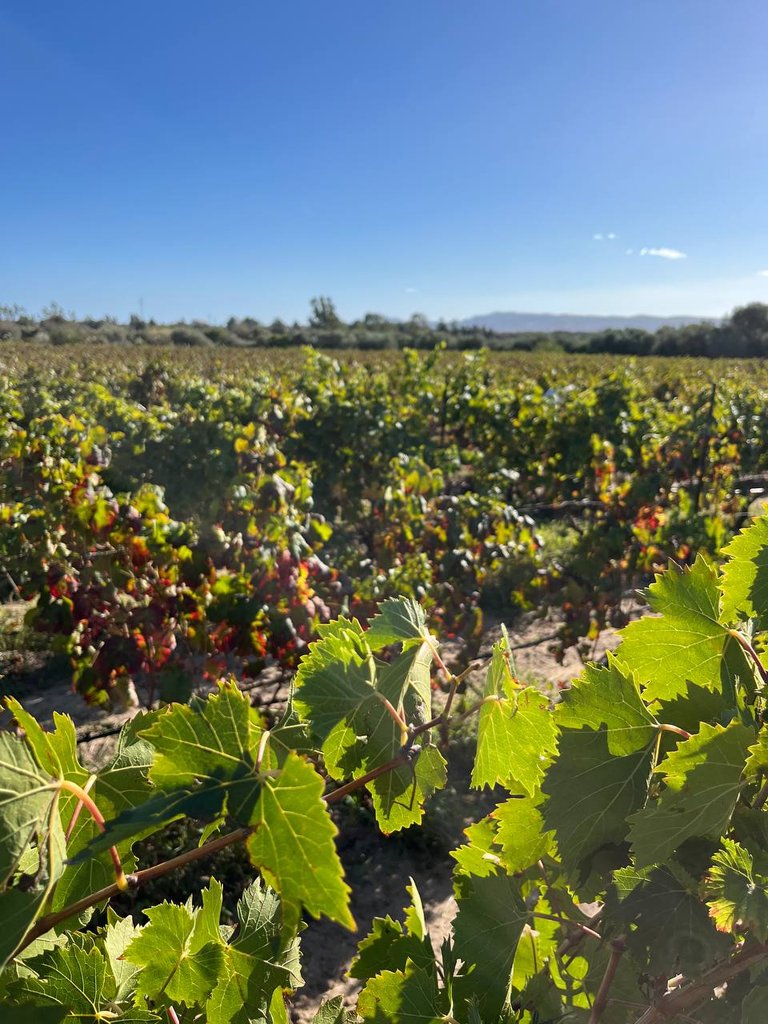
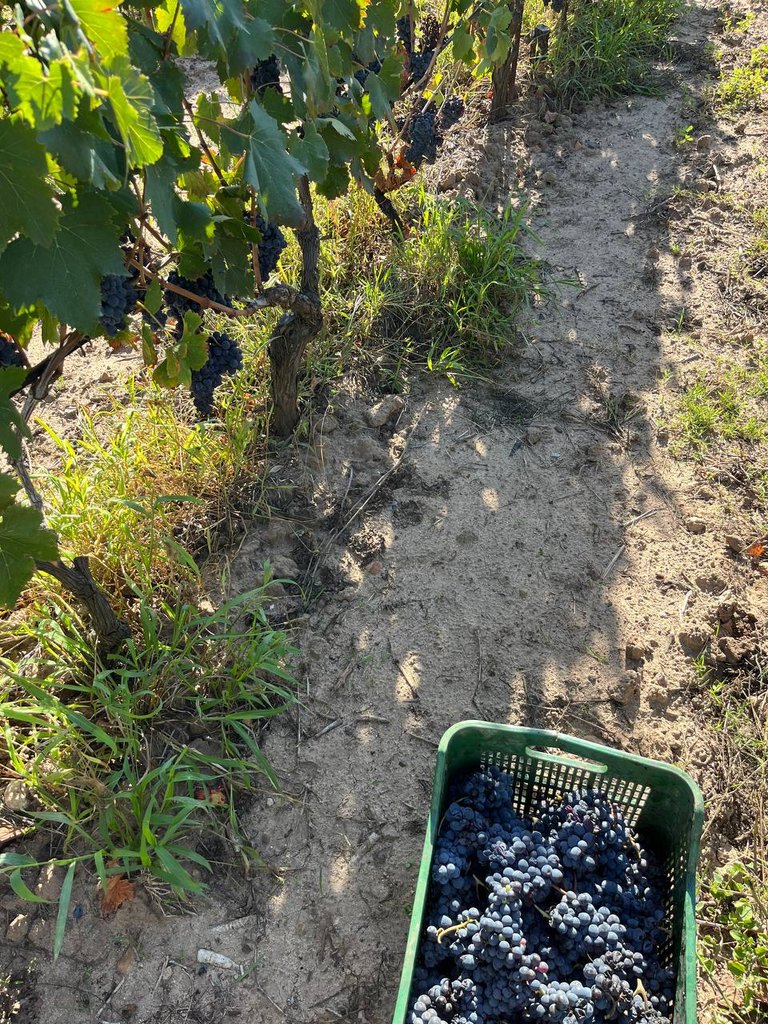
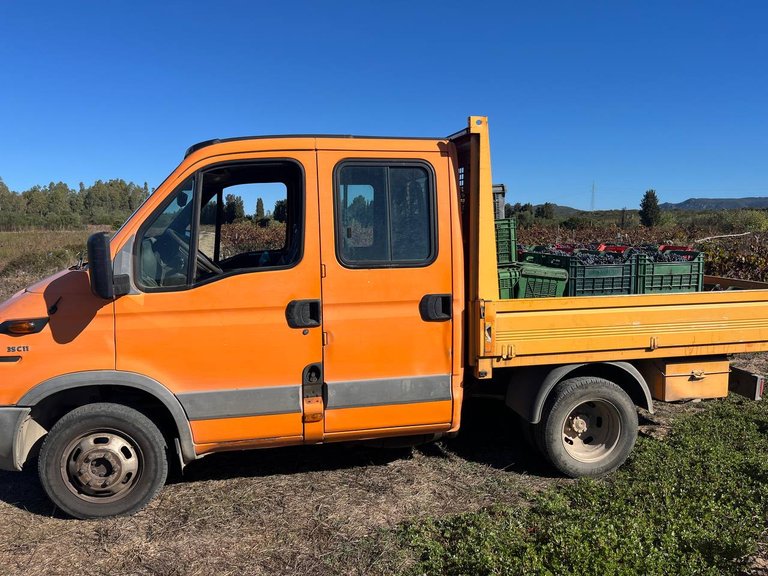
At the end of each day, we would take the grape crates to a safe spot, to unload them on the ground. In the first three days, we had accumulated 246 crates.
Now, since grapes start to spoil after a few days, every two or three days we needed to load the crates onto another truck to have them taken to the cooperative winery: the grapes were beginning their process to become wine.
When the truck arrived, we would promptly have to empty the crates into its loading bed. This was by far the hardest job. The first time there were 246 crates, and there were only three of us workers: by the end of that morning, I realized I had lifted the equivalent of 82 crates.
82 × 20 kg = 1640 kg.
I was exhausted, completely worn out, but also very happy and proud of myself. I have never felt so powerful as I did in that moment. It made me realize that we can achieve great things, lift incredible weights, just one crate at a time.
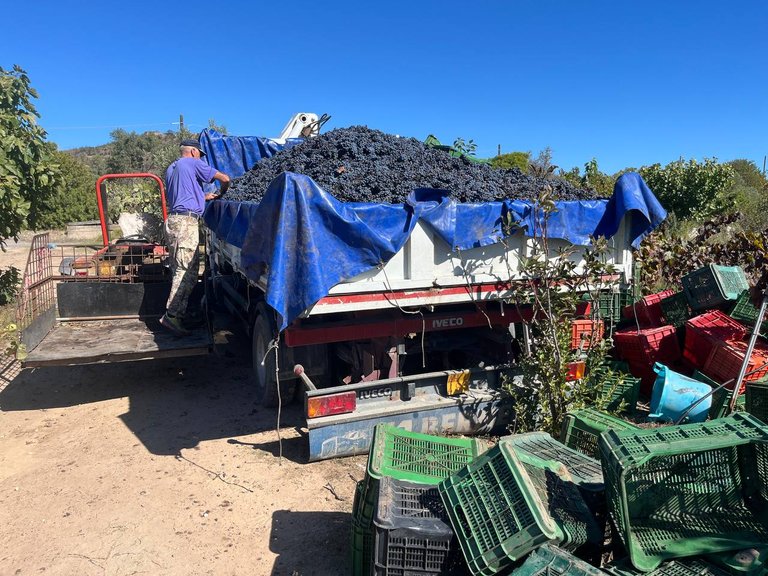
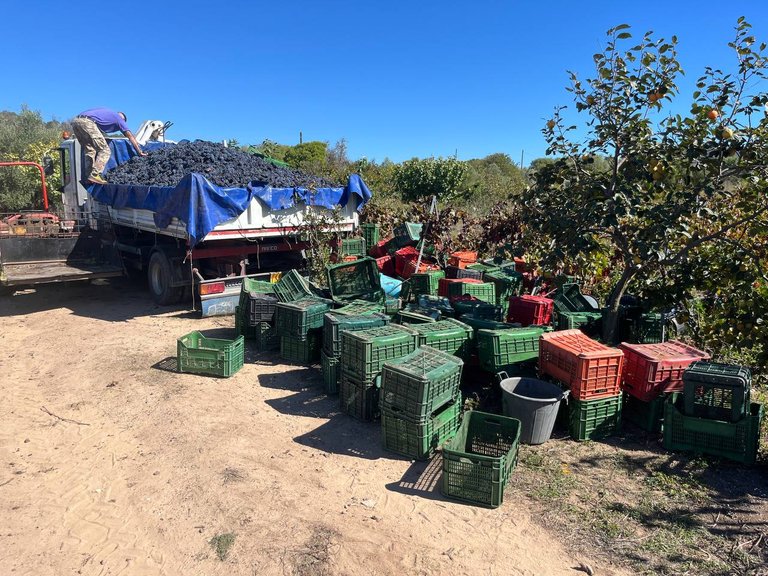
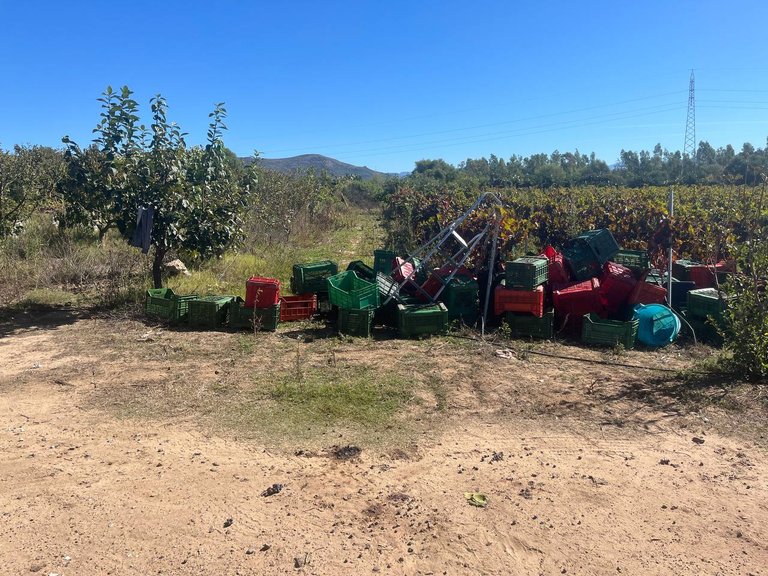
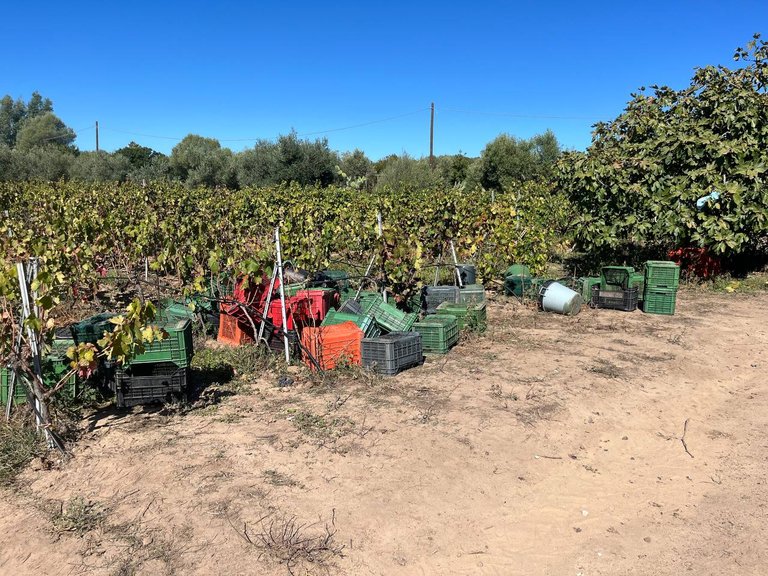
This is just one of the lessons agriculture can teach us. Personally, it was wonderful to forget screens and office work and immerse myself in nature, feeling covered in soil, sweat and grape juice, taking in the smells and experiencing again the fatigue of physical labor. I never sleep as well as I do during the periods when I work hard in the fields for many hours a day.
And in a job I’ve known so well for so long, I rediscovered the child I used to be a long time ago.
After a few days of rest, I started working on my olive trees — which, as I mentioned, are a legacy I inherited from my grandfather.
I know those trees inside and out, and I respect them. I grew up among them, playing hide-and-seek and chasing lizards as a child, and sitting down to read in their shadow when I was a kid.
At the age of 20, however, I moved to the city, and a few years later I left the island. I forgot this reality for so much time, absorbed in my projects and my career. I came back here when my grandfather passed away, and in the beginning, it wasn’t easy to go back to those fields.
My feelings changed in 2022, an incredibly productive year for olives in Sardinia. Every day, I would pass by those fields, see those olives on the trees and think: “Isn’t it a mortal sin to let them rot there?”
Last October, I finally found energy and time to take care of the olive trees. When it started, it was as natural and spontaneous as breathing.
I first had to cut off the suckers from the base of the trunks. Then, I began picking the olives slowly, stopping whenever I needed to cut off any unnecessary small branches. It was a calmer task because I was working for myself. I savored every moment: the pleasant autumn mornings, the still-warm sun, the songs of sparrows and the hawk in the tallest tree, the wet dew on my feet – yes, I am often barefoot on the grass, to feel a better connection with the earth.
I wasn’t always alone; my father was often with me, but we spoke little or not at all, each lost in his own thoughts.
In the middle of the afternoon, when the shadows were growing longer and the mosquitoes started to bite, we would sit in the yard to clean the olives, removing leaves, twigs, and various types of dirt. It’s a somewhat monotonous task but also relaxing: my sister, my parents, and I, all sitting together, listening to some music and drinking a few beers.
Once the olives were picked and cleaned, the next step was to take them to the mill, where the final stages of the oil extraction process are carried out: crushing, malaxing, extraction, filtration and storage.
The mill is a fascinating place, where the strong scent of pressed olives and raw oil fills the air like a symphony or an enchantment.
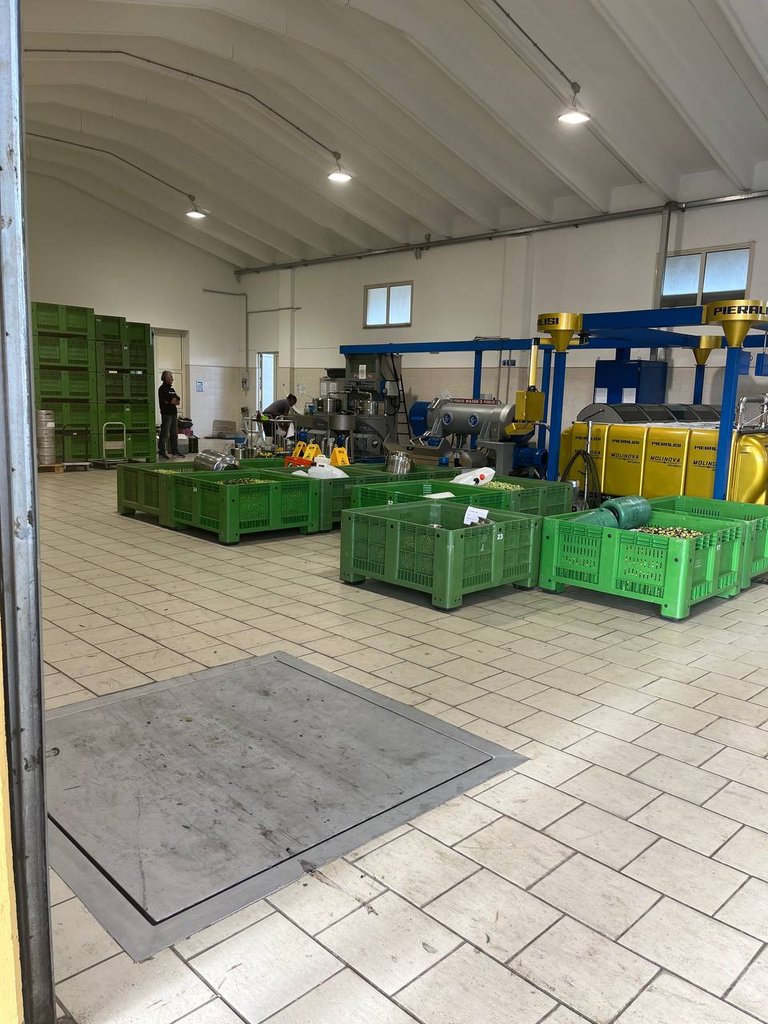
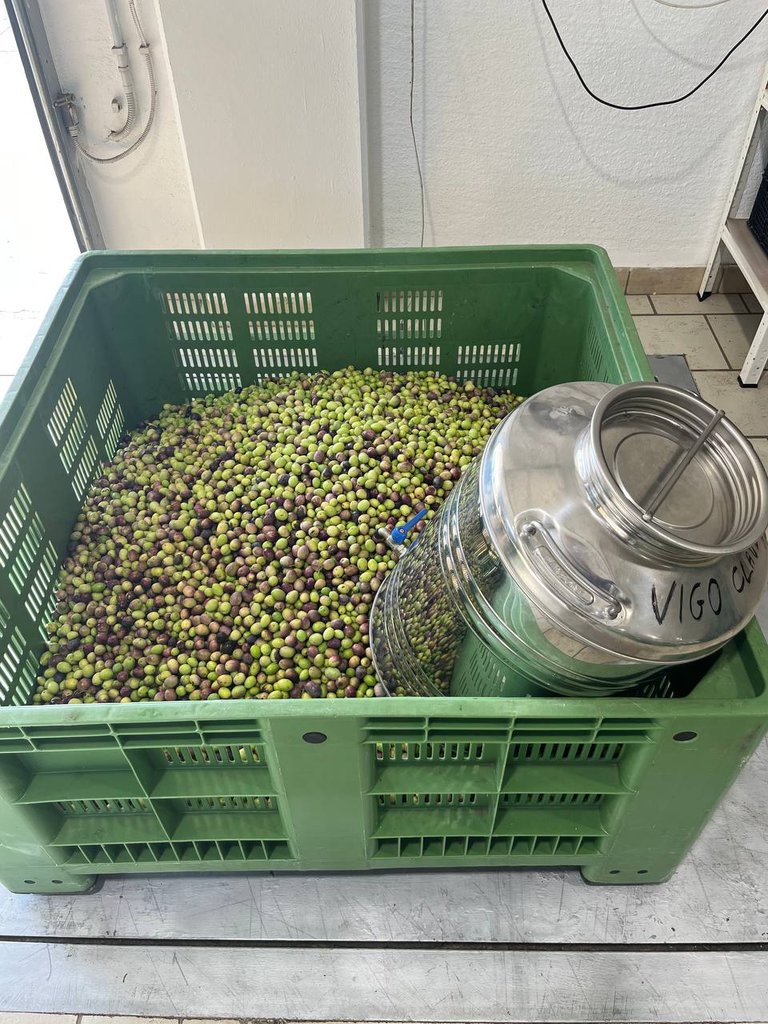
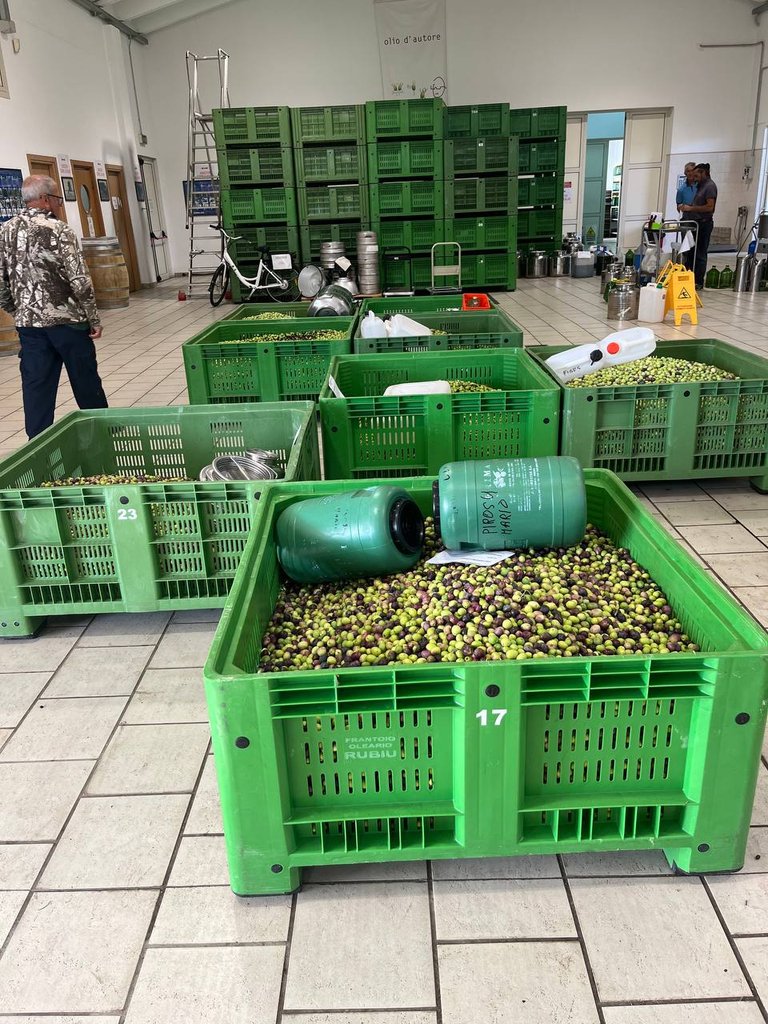
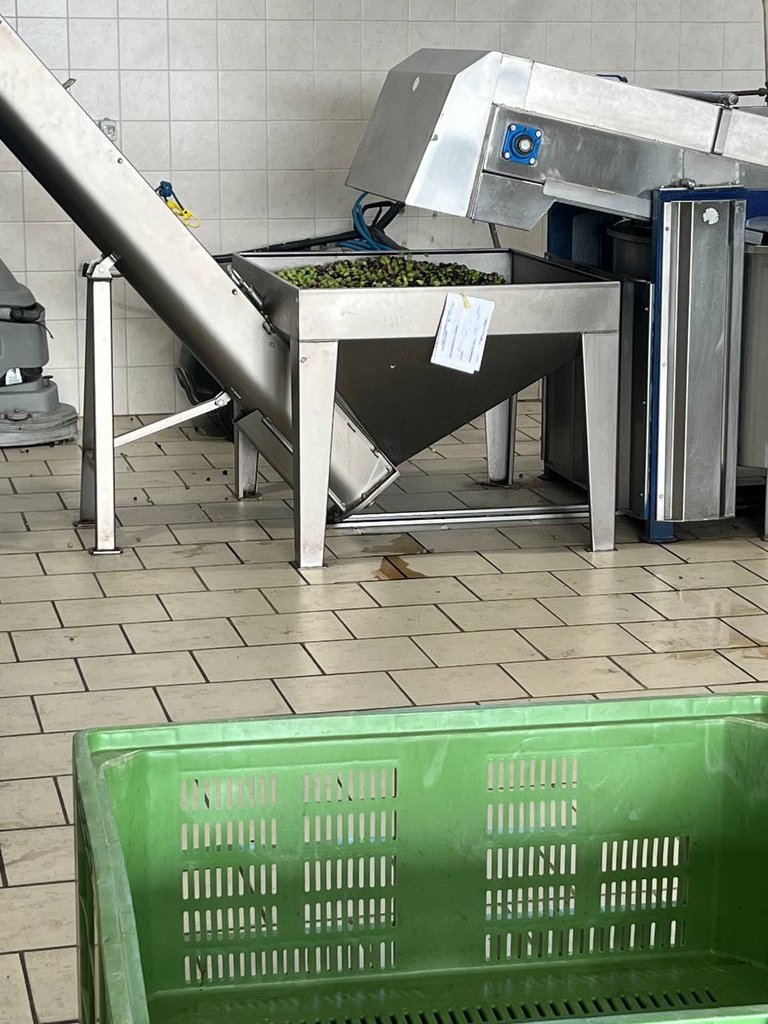
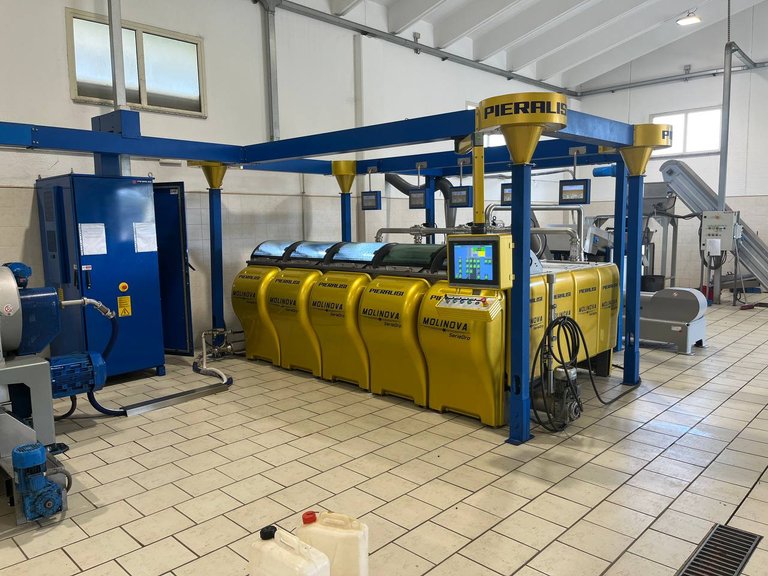
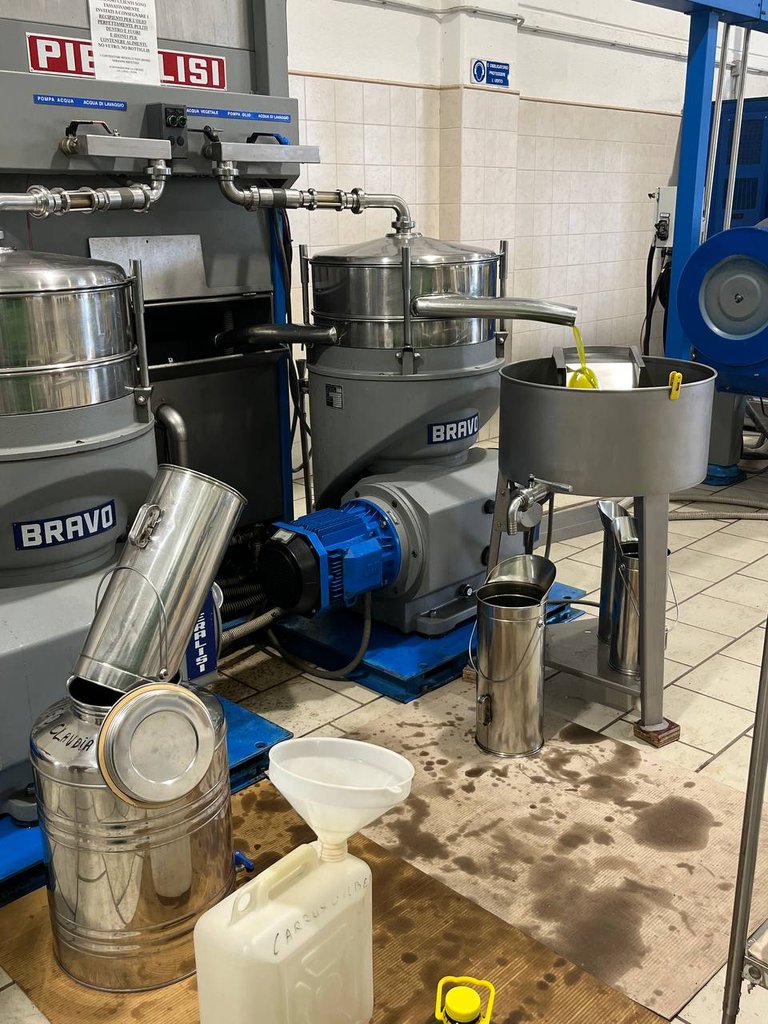
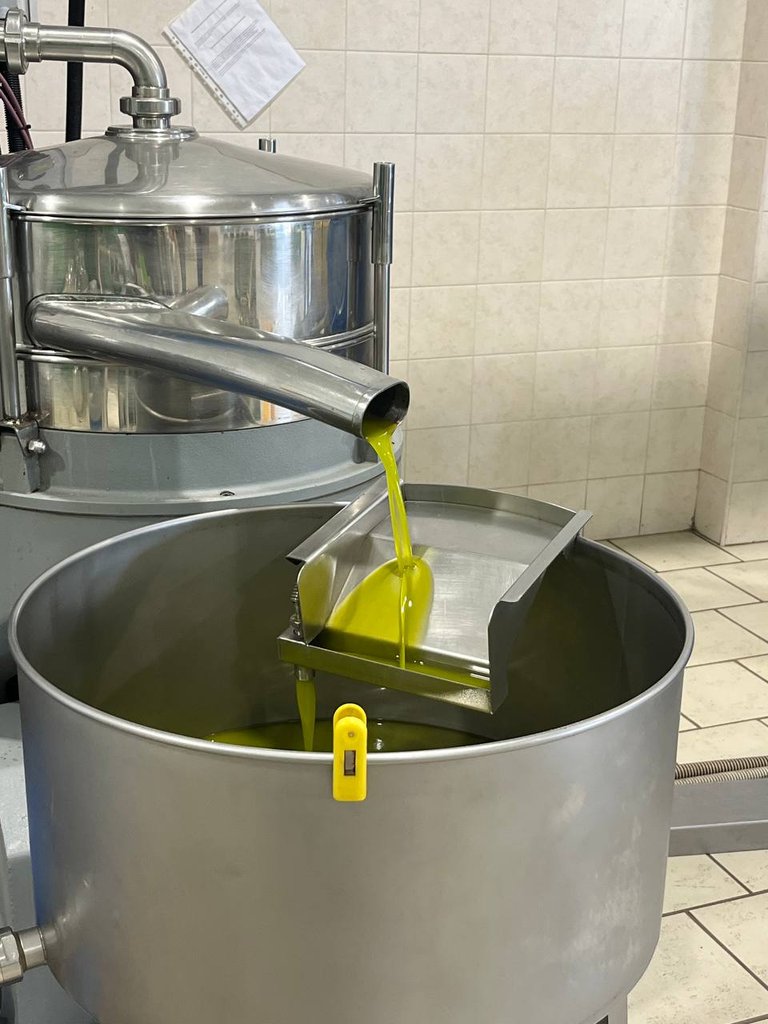
The moment I saw the oil flowing out, clear and pristine, my heart skipped a beat. Pure emotion poured from my heart, just like the oil from the spout.
It may sound strange, but I felt deep down that the work was over, and for a brief moment I felt regret. I wished it could have lasted just a little longer, giving me the time to grow tired of it.
It was a bit like that melancholy that wraps around you at the end of a wonderful journey or the last page of a book, or a love cut short before it could reveal all its magic.
And now, looking back, I realize that it truly wasn’t any different from a journey, a journey through the fields, immersed in nature, a journey through my memories and my relationship with my family, a journey into the traditions and history of my homeland, a journey within myself, into my emotions, into what I love doing and what I desire for myself.
I think that, from now on, I’ll gather the olives every year.
I sincerely hope it has been an enjoyable read, and that it has conveyed something to you, whether an emotion or a glimpse into a world you’ve never seen before.
Talk soon!
Alessandro
